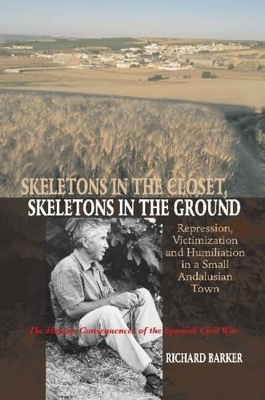This book examines the human consequences (individual, social, cultural, and economic) of civil war and political repression in Castilleja del Campo, a town in southern Spain with barely more than 600 inhabitants today. The narrow geographical focus allows for a coherent chronological narrative with relevance to current public issues such as the unequal distribution of wealth, political polarisation, the violation of human rights, government surveillance of civilian populations, and extra-legal detentions, torture and executions. The declarations of eyewitnesses are complemented by personal documents, contemporary newspaper accounts, and documents from the town's municipal archive and other archives in the province of Seville. The work presents the events from the proclamation of the Second Spanish Republic in April 1931 onward from multiple points of view and analyses the interactions among a gallery of characters: Republican and pro-Franco mayors and councilmen; union leaders and affiliates; members of the fascist-inspired Spanish Falange; the schoolteacher; the priest; widows and orphans of the men who were shot; administrators and managers of the estates of the nobles; shaved women paraded through the streets; combatants; day labourers; civil guards; black marketeers; prisoners. Placing these characters and events in their provincial, regional, and national context, the town becomes a microcosm that reflects the experience of Spain during those traumatic years. Published in association with the Canada Blanch Centre for Contemporary Spanish Studies.
- ISBN10 1845195361
- ISBN13 9781845195366
- Publish Date 7 March 2012
- Publish Status Active
- Publish Country GB
- Imprint Sussex Academic Press
- Format Paperback
- Pages 272
- Language English
